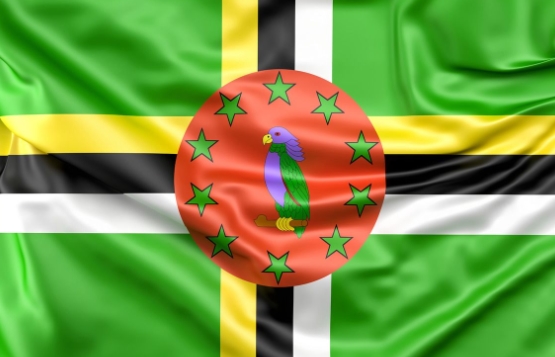
The Citizenship by Investment Programme
Some information about Dominica
Commonwealth of Dominica is the state on the same island of the Lesser Antilles (Windward) islands in the Caribbean.
Dominica – the largest of the Windward Islands, bordering the west by the Caribbean Sea and the east by the Atlantic Ocean, south-southeast of Guadeloupe and northwest of Martinique. It has an area of 754 square kilometers (290 sq mi) and a population of 73 900 (2017).
The capital is Roseau, located on the leeward side of the island. Dominica is volcanic in origin, currently there are no active volcanoes, but volcanic activity is shown in the form of geysers, hot springs and small lakes with boiling water. There are the beaches of black and yellow sand on the coast. The highest point in the country is Morne Diablotins, which has an elevation of 1,447 meters (4,747 ft). All the boundaries are maritime.
The total length of the coastline is 148 km (91 miles). English is the official language of Dominica and is universally spoken and understood. Antillean Creole, based on French, is spoken by many people on the island. Dominica’s currency is the East Caribbean Dollar.
History
Christopher Columbus spotted the island on November 3, 1493. In 1632, the French “Compagnie des Îles de l’Amérique” claimed Dominica and other “Petite Antilles” for France, but no physical occupation took place. After France was defeated by Britain in the Seven Years’ War, it ceded the island to the British under the Treaty of Paris (1763). Dominica became an associated state of the United Kingdom in 1967 and formally took responsibility for its internal affairs. On 3 November 1978, the Commonwealth of Dominica was granted independence from the United Kingdom. From 1993 The Commonwealth of Dominica offers an official and legally mandated economic citizenship to those seeking a valid second passport.
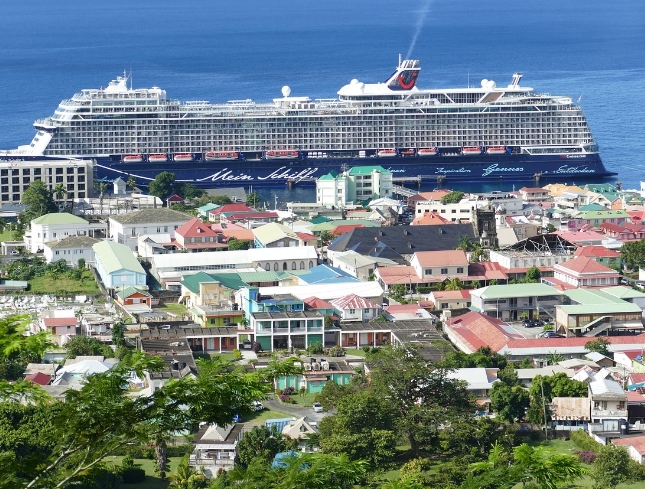
Tax Heaven
The Commonwealth of Dominica began offering offshore services in 1996. Today it has become one of the ideal jurisdictions and a tax haven for offshore services. The formation of International Business Companies (IBCs) is one of the key areas which generate income for the Government of Dominica. These IBCs are governed by the International Business Companies Act of 1996. Offshore companies formed in Dominica enjoy total exemption from local taxes including: Income and capital gains taxes, withholding taxes, transfer taxes, stamp duties. Total anonymity, privacy and confidentiality. Services offered in this offshore area include tax planning and asset management, company registration, establishment of trusts, offshore banking, etc.
Government Administration
Dominica is a parliamentary democracy within the Commonwealth of Nations. The Commonwealth of Dominica is one of the Caribbean’s few republics. The president is the head of state, while executive power rests with the cabinet, headed by the prime minister. The unicameral parliament consists of the 30-member House of Assembly, which consists of 21 directly elected members and nine senators, who may either be appointed by the president or elected by the other members of the House of Assembly. Main political parties: Dominica Freedom Party, the United Workers Party of Dominica, Dominica Labour Party. The Dominica’s legal framework is based on the English common law. Universal suffrage is provided to all Commonwealth citizens with eighteen years who have lived in the country for more than a year.
Countries – members of the Organization of Eastern Caribbean States (OECS) – Antigua and Barbuda, Dominica, Grenada, St. Vincent, St. Kitts and Nevis and Saint Lucia – have a joint Supreme Eastern Caribbean Court, with headquarters on Saint Lucia. It consists of the Supreme and Appeal Courts. The Supreme Court submitted in Dominica by the judge-resident who acts as the Chief Judge of the island.
The Citizenship By Investment Programme
Citizenship Details
The Commonwealth of Dominica developed its highly reputable Citizenship by Investment Programme in 1993, which today celebrates more than 20 years of continued success. Applicants under the Programme must be at least 18 years old, of good character, and of sound health, must have no criminal records. Applicants must also be able and willing to make an investment into the Dominican economy, either in the form of a contribution to the Economic Diversification Fund or as an investment in local pre-approved real estate. Dominica is proud to offer the most affordable citizenship by investment programme in the world, with a view to focusing on the overall quality and integrity of its applicants. It is a legal naturalization programme for investors based on and guaranteed by governmental laws.
To qualify for citizenship via investing in real estate, the value of the acquired property must be a minimum of USD 200,000 and the development must be approved by the government.
You are not allowed to sell on your investment during a 3-year period, but you can receive income from the activities of the project. Another way to obtain citizenship is to invest in the Economic Diversification Fund in the amount of USD 100,000. This option does not provide for the return of dividends from your invested money. The main sectors of the economy, that fall under the funding through this Programme is the development of the social sector: construction of schools, hospitals, sports stadiums, the development of the offshore sector. In financing of private projects, the emphasis is on tourism, information technology and agriculture.
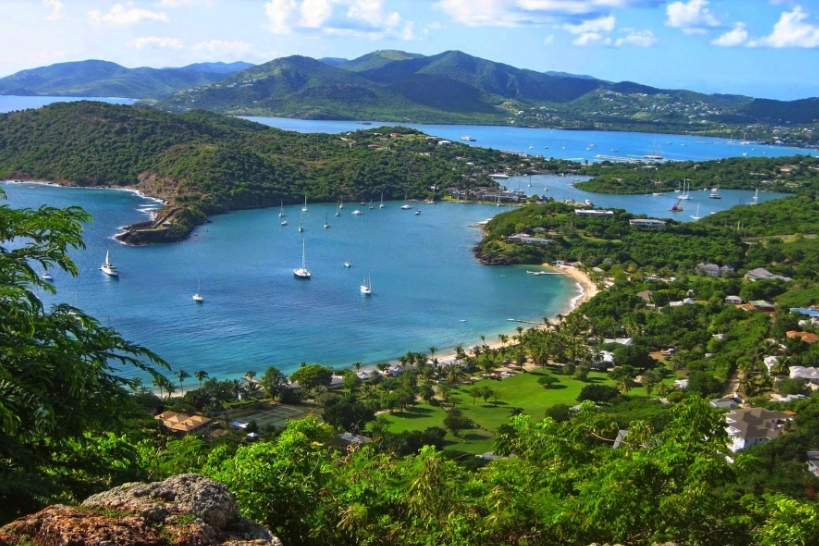
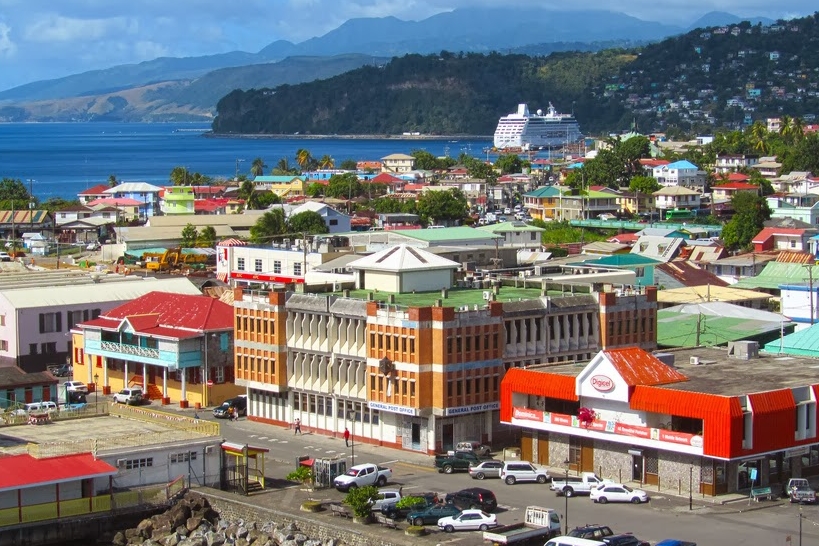
Features and benefits
Citizenship and passport of Dominica is
Travel without problems. Dominica is politically stable and economically developed island country, so the citizens of this country can travel around the world without any restrictions or harassment.
Travel without a visa. The passport of Dominica gives you and your family the opportunity to travel freely across the world with a visa-free entry to more than 100 countries. If a visa is required, then get it will not be any problems.
Asset management and tax planning. A low tax regime. There is no income tax on Dominica, and neither is there any gift tax, wealth, inheritance or capital gains tax.
Safety. Dual citizenship will allow you to feel safe and do not depend on the political and economic fluctuations.
Benefits of acquiring Dominica Citizenship
You don’t have to worry that a Dominica passport would have a bad reputation or that you would be sharing you citizenship status with shadowy characters. Both the existing procedures and the regulatory framework of granting economic citizenship are certain to preclude such precedents.
In accordance with the law, the Commonwealth is not obliged to notify and does not notify other countries via official political channels that citizens of the said countries had been granted the citizenship of Dominica.
As a Commonwealth citizen, your children will be able to benefit from the UK’s youth mobility scheme, receiving preferential treatment when applying to colleges and universities in the United Kingdom.
Country Development
Economy
The financial sector in Dominica has three foreign commercial banks – Bank of Nova Scotia, Royal Bank of Canada and First Caribbean International Bank – and one state bank – National Bank of Dominica, as well as several offshore banks.
The Eastern Caribbean Central Bank was established in October 1983. It is the Monetary Authority for a group of eight island economies namely – Anguilla, Antigua and Barbuda, Commonwealth of Dominica, Grenada, Montserrat, St Kitts and Nevis, St Lucia, and St Vincent and the Grenadines. The mission of ECCB is to maintain the stability of the EC dollar and the integrity of the banking system in order to facilitate the balanced growth and development of member states.
The conservative policy of the Bank has led to the stability of the currencies of the participating countries and made the East Caribbean dollar one of the strongest currencies in the region.
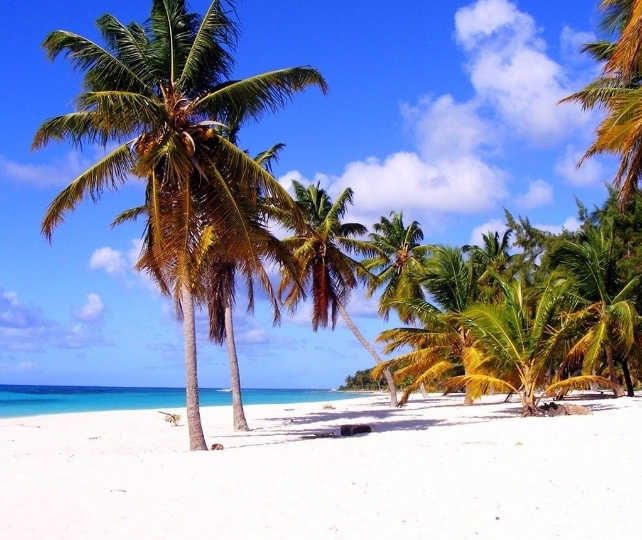
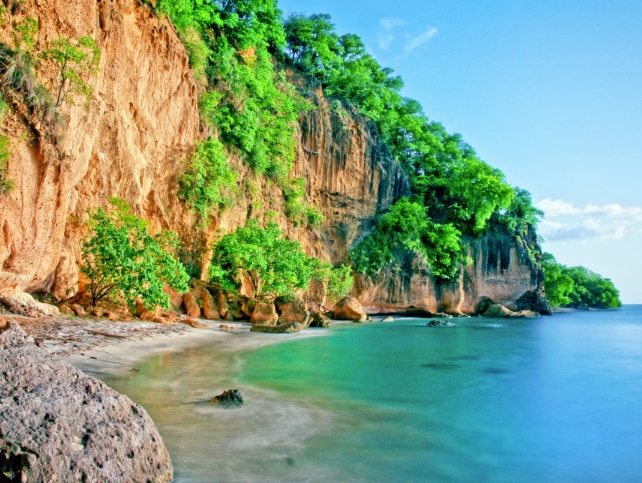
Benefits of Banking in Dominica:
Dominica is a member of Caribbean Community (CARICOM) and the Commonwealth of Nations. CARICOM is an international organization which consists of 15 member states all of whom are based in the Caribbean. CARICOM works to promote economic co-operation and integration in the region. The secretariat headquarters is based in Georgetown, Guyana. The Commonwealth of Nations is a voluntary organization of 53 countries which share no legal commitment to each other but have a common goal of enhancing the “development of free and democratic societies” and “promoting peace and prosperity to improve the lives of all peoples of the Commonwealth.” There are many benefits to Commonwealth members such as easier travel between Member Countries, protection of all Members by other embassies and commissions around the world and eligibility for certain sporting activities (the Commonwealth Games). Dominica is also a member of the Organization of Eastern Caribbean States (OECS), the Caribbean Development Bank (CDB), the United Nations, the International Monetary Fund, the World Bank and the Organization of American States (OAS). The country maintains missions in Washington, New York, London, and Brussels and is represented jointly with other Organization of Eastern Caribbean States (OECS) members in Canada.
Dominica is a beneficiary of the U.S. Caribbean Basin Initiative (CBI). Dominica’s economy is heavily dependent on tourism and agriculture. Bananas and other agriculture dominate Dominica’s economy, and nearly one-third of the labour force works in agriculture. This sector, however, is highly vulnerable to weather conditions and to external events affecting commodity prices. Tourism, offshore services sector, the banking sector of financial services, sale of citizenship for investments are further in importance after agriculture. The main products of agricultural production, which provide the majority of export earnings, are bananas, citrus (limes, oranges and grapefruit), mango, coconut, coconut palm products, and various spices.
Forest and fish resources are almost not used. There is a relatively large fishing industry in Dominica, but it is not modernized and almost exclusively serves the domestic market. A successful experiment in fresh-water prawn farming, supported by Taiwanese aid, has produced substantial amounts of prawns for the domestic and local markets. Japan has provided support for a fish landing and processing plant in Roseau. Dominica has the potential for a lumber industry. Some 46,000 hectares (110,000 acres) are classified as forest, representing 61% of the total land area. Commercially valuable woods include mahogany, blue and red mahoe, and teak.
Dominica’s small manufacturing sector is almost entirely dependent on agriculture, and the island has built up a handful of successful industries specializing in soaps and other agricultural byproducts. The largest manufacturer is Dominica Coconut Products, controlled by Colgate-Palmolive, which produces soap from coconuts. The factory has an agreement to sell an estimated 3 million bars of soap each year to Royal Caribbean Cruise Lines. Dominican soap is also exported throughout the region, but has recently encountered intensified competition from other regional producers, especially in the important export markets of Jamaica and Trinidad and Tobago. There are small industrial enterprises engaged in the production of copra, palm oil, plywood and furniture, concrete blocks, textiles and shoes, toothpaste and soft drinks. Foreign firms are developing deposits of pumice and limestone. The trade balance of Dominica strongly biased towards imports.
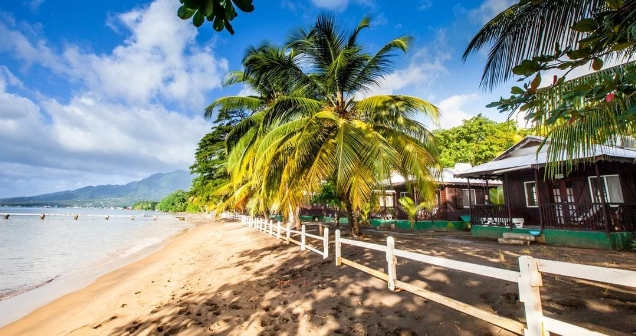
The goods are exported mainly to UK, USA, Jamaica, Antigua and Barbuda and other countries of the West Indies. Food products, petroleum products, industrial and consumer goods, machinery and equipment etc. are imported to the island. The imports are mainly from the USA, China, Trinidad and Tobago, the UK and Japan.
The island has no railways. The length of roads is 780 km (485 mi), half of which is paved. Driving is on the left-hand side of the road. Some of the roads in more rural areas are rough and unpaved, and require a four-wheel drive vehicle. Dominica has three ports of entry: Portsmouth, Roseau, and Anse-de-Mai. Portsmouth and Anse-de-Mai are located in the northern region of the island, and Roseau is in the south.
There are two small airports on the island. The primary airport, Melville Hall Airport (DOM), is on the northeast coast and is about a 45-minute drive from Portsmouth. The second is Canefield Airport (DCF), about 15 minutes from Roseau on the southwest coast. They do not have international status and are not for use by modern jet liners. Melville Hall Airport is suitable for limited use of commercial jets because of runway length. Melville Hall currently has regular service by BVI Airways, Winair, Seaborne Airlines and LIAT using twin turboprop aircraft like the De Havilland Dash 8, as well as Conviasa and Amerijet, which, using Boeing 727 Freighters, is the only airline with jet service to the republic. The Canefield airport is served by Dominica Air Taxi which is operated by Carib Aviation using Twin Otters.
Under current regulations, to qualify for citizenship of the Commonwealth of Dominica under its Citizenship by Investment Program, the Government requires either a contribution made into the Government Fund amounting to USD 100 000.00 depending on the number of dependents included in the application or an investment in designated Real Estate with a value of at least USD 200 000.00. Additional payments for any dependents included in an application, due diligence fees, government fees and other fees are also payable. VAT is levied on rental income at a general rate of 15%. However, a special rate of 10% applies on (a) accommodation services provided by hotels, guest houses, inns or similar establishments and (b) accommodation services in an apartment or room with utilities and furnishings provided by the lessor or property owner.
Sales of properties are liable for stamp duties levied at 6.5% of the sales price or the market value of the property. Generally, 2.5% is payable by the seller and 4% is payable by the buyer.
There are no real property taxes in Dominica but there are municipal taxes levied on properties located in the cities of Roseau and Canefield. The tax rate is 11/4% (or 1.25%) levied on the assessed value of the property.
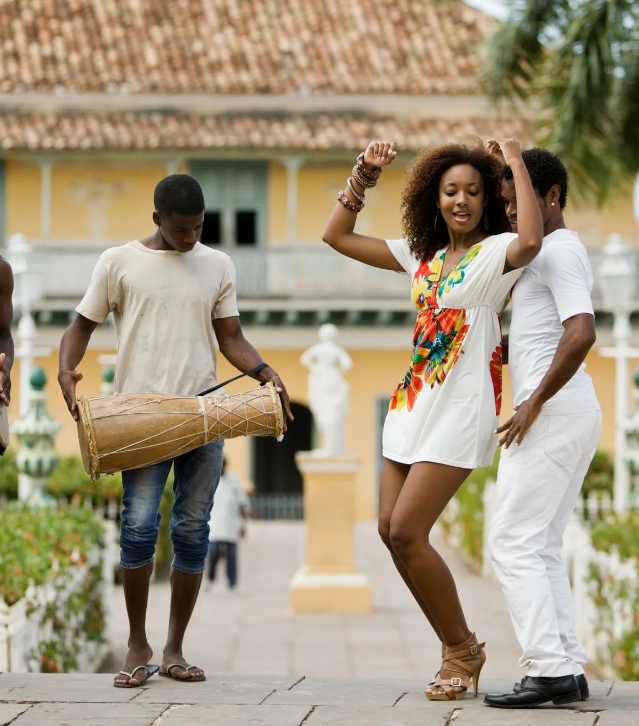
Nature and culture
Dominica is mostly volcanic and has few black sandy beaches; therefore, tourism has developed more slowly than on neighboring islands. Nevertheless, Dominica’s mountains, lush rainforests, freshwater enchanting lakes, hot springs, myriad waterfalls, and diving spots make it an attractive eco-tourism destination. Ecotourism is a growing industry on the island.
The government has encouraged a steady increase in Dominica’s tourism capacity, with numerous new hotels being built and considerable investment in cruise ship facilities. The new cruise ship jetty at Prince Rupert Bay, near Portsmouth, has dramatically increased the number of ships calling annually and brought significant tourism-related opportunities.
However, Dominica has a few famous tourist spots, such as the Indian River in Portsmouth, Emerald Pool, Trafalgar Falls, Scotts Head (where the Atlantic Ocean meets the Caribbean Sea), and the world’s second-largest boiling lake, which is inside Morne Trois Pitons National Park. The ocean is crystal clear and calm on the Caribbean side of the island and more violent on the Atlantic coast. This is one of the best places in the Caribbean for sport fishing and whale watching. This island country also has many excellent diving spots due to its steep drop-offs, healthy marine environment, and reefs.
Morne Trois Pitons National Park presents a rare combination of natural features of UNESCO World Heritage Site value. Northern Forest Reserve surrounds the highest peak of the country, the volcano Diablotin (4 747 ft), and encompasses some 22 000 acres of land, protecting watersheds, plants and animals. It is famous for its population of two extremely rare species of Caribbean parrot, the Sisserou and the Jacquot, including the national symbol of the country – the Sisserou (“Imperial parrot”, up to 50 cm in length).
The people of Dominica are inherent in cultural diversity. West African culture of the first settlers evolved into a Creole. Then this stream of culture was added to European influence. In the end, after mixing of many ethnic groups, languages and religions appeared multifaceted civilization.
The people of Dominica in one period can celebrate Christian holidays – Christmas, Easter, Pentecost, and at another time to celebrate the old holidays of Creole culture. Music and dance are important facets of Dominica’s culture.
The annual independence celebrations display a variety of traditional song and dance. Since 1997, there have also been weeks of Creole festivals, such as “Creole in the Park” and the “World Creole Music Festival”.
Company
Investment programmes
© 2021 All rights reserved.